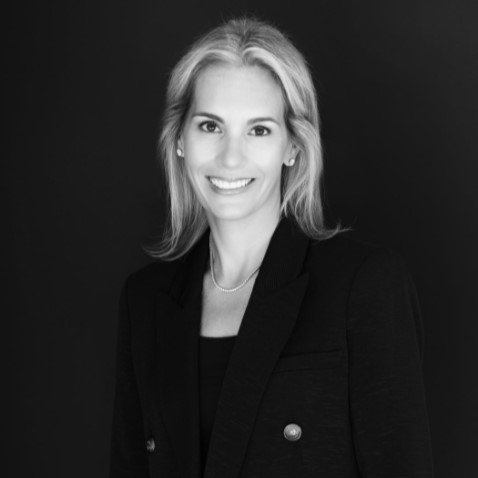Wealth Strategies
HNWIs Must Get Real About Insurance Costs In Turbulent Planet

We talk to an insurance specialist, focused on private clients often with significant wealth, and how enthusiasm for living in remote places, coastal zones and the like carries significant cost risks, particularly as climate change is blamed for causing more damage to property.
High net worth individuals seeking the solace of a place near the beach, a forest, or mountain range often have the means to make those goals a reality. But with climate change and other forces at work, they need to consider how and why insurance premiums are rising and whether or not there are compromises that they might need to make, an advisor in the sector says.
A new report from digital insurance agency Insurify has predicted that premiums will rise in the US by 6 per cent for 2024. Some states, such as Florida, known for hurricanes, will see larger increases.
US citizens have flocked to Florida and certain other states such as Texas in recent years – these states don’t have a local income tax.
While all that influx is positive – perhaps for the state’s economy and for those who are seeking a tax haven – there’s a downside. Florida, which is only a few feet above sea-level, is vulnerable to storms. In Texas, convective storms and wildfires are prevalent and, as residents of Houston learned as recently as in July. Hurricanes like Hurricane Beryl are known to make an appearance and wreak havoc and destruction.
And, whether or not hurricanes are rising above long-term averages because of global warming, the rise in the number of homes, offices and other activity affected in desirable coastal areas means that storms caused more damage in financial terms.
“They [insurers] have had to deal with an incredibly challenging market environment,” Katherine Frattarola (pictured), head of HUB Private Client, told this publication. Her organization is part of HUB International, which says it is the largest privately held personal insurance brokerage in the US.

Katherine Frattarola
Not only is climate change a problem, but inflationary pressures, caused by various forces, are adding to this, she said. They have come as hold-overs from Covid and the labor and supply shortages that ensued. Also, social inflation has been on the rise, plaguing states such as Florida. [Social inflation refers to insurers' claims costs that are increasing above general economic inflation.]
Specific to the pandemic, people relocated and sought refuge in the same areas that we all tend to enjoy in droves – whether that be mountainside ranches or beachside villas. They bought boats, cars and other high-value items.
The problem is that the “appeal of beautiful places” can be “too hard to resist and too often they’re rife with vulnerabilities,” she continued. It is not just hurricanes, wind or floods to consider. A remote home in a mountainous region can be vulnerable to fires, and roads leading to such homes can be difficult for emergency services to use. That’s a major consideration when a carrier decides whether to underwrite the home.
And, with an increase of people in the same places, concentration risk increases and that puts further pressure on the overall market conditions, which has resulted, correspondingly, in limited carrier appetite and high premiums.
In this context, a big part of what HUB Private Client does is to help their clients navigate more effectively through risk that is associated with their assets, geographic preferences, and lifestyle to tailor a strategy that is aligned to their specific needs and complexity. In some cases, the strategy and corresponding solution set requires understanding different options so that homeowners are 'eyes wide open' before they contemplate a move.
One such option is self-insurance. Self-insurance is when the homeowner assumes the property risk themselves and, accordingly, should there be a loss, the homeowner would assume that cost themselves. Self-insurance is often only an option for higher net worth individuals as most lenders will not allow self-insurance if they have obtained a mortgage. Another option used routinely in commercial insurance – but it is being employed more frequently in personal lines insurance – is to create a shared and layer program whereby multiple carriers assume different levels of risk that, in aggregate, satisfy the full insurance value of the home.
In other cases, risk advisors are turning toward the non-admitted markets, which can be more expensive and can often provide more limited cover. However, it allows homeowners to benefit from a more comprehensive solution set than what is routinely offered by standard markets.
As these alternative solutions have evolved, it is important for homeowners to understand the advantages and disadvantages of the various options and reflect accordingly. For example, self-insurance might seem like an appropriate solution, particularly for someone with a robust balance sheet, but if that person endures a catastrophe, such as a big flood and they experience a total loss, they need to understand whether they can afford to recover from it and are prepared to mobilize vendors, contractors and other specialists on their own behalf.
The role of businesses such as HUB highlights that in one sense, wealth management and risk management are often one and the same, as both are aligned to ensuring that their mutual clients’ assets are preserved for generations.
Frattarola noted that “for many of our clients it is an arresting experience when they are used to paying $20,000 a year on insurance and are now being quoted at $100,000” but, in the event of a loss, it’s important that we help them put a plan in place so that they recover with limited friction to their family lifestyle and disruption to their balance sheet."
As the financial and personal affairs of HNW people get more complex, so do the demands on insurance and advisors, Frattarola said. “We continually evolve and expand our offering to meet our clients where, when and how they want to be met, and we will continue to invest in data, often obtained by modern technologies such as aerial photography and images from drones and satellites, to drive insights to clients so that they can make better decisions to protect their families."